
 Flash News
Flash News
Bird flu, almost 500 thousand chickens destroyed, egg prices increase in the market
Food scandal with strawberries from Greece, AKU: The entire quantity with pesticides was sold on the market
SPAK vs. SPAK, Këlliçi: Prosecutors from this structure encourage Karlo Bollino from Leç to attack their colleagues
'Targeted' Parliament, SHISH and other institutions, who is the 15-year-old who broke the security of state websites
Massive brawl breaks out after car crash, 4 arrested and one wanted in Durrës
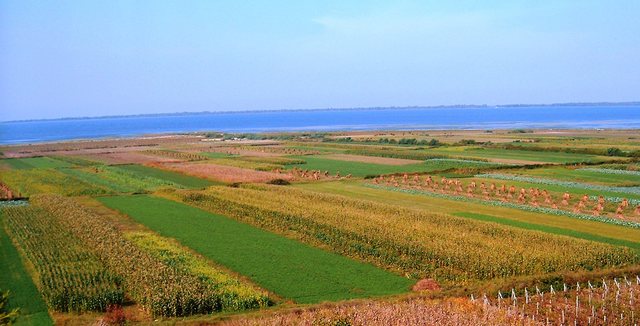
Beans, one of Albania's traditional foods, are disappearing from the fields due to climate change. Korça farmers, once the main producers, are facing huge losses, while imports from Egypt have flooded the market.
Monday, for most Albanian families, is “bean day.” A custom passed down from generation to generation, more enduring than any agricultural policy in the country. But this year, traditional hot dishes are being filled with Egyptian beans, because in Korça, once the place where the best legume was produced, the plant did not survive the heat.
Altin Ibrahimi, a farmer from Pojani, who has been involved in agriculture for 20 years, recounts a disastrous year: "I only got 600 kg of beans from 4 hectares. I used to get this amount from 2 hectares."
From an affordable dish for every pocket, beans have become a luxury. Last year, their price went up to 700 lek per kilogram. It is likely that this year will be the same.
"Now we don't know whether we should plant or not, because high temperatures are expected again," says Altini.
Because of the losses, he plans to halve his planting this year.
"I lost 10 million lek and couldn't even put 1 thousand lek in my pocket. I have the seed, but the land is rented and the costs for workers are high"
Many other farmers no longer even have seed to plant. They have to buy it in a market already overrun by imports.
From Korça to Cairo
Instead of collecting them in Korça, we now unload the beans at the port. Data processed by Faktoje shows that bean imports have increased more than fivefold in the last ten years.
In 2014, Albania imported 1,460 tons of beans. Today? Over 7,300 tons. Why? Climate, lack of policies, and the inability to protect farmers.
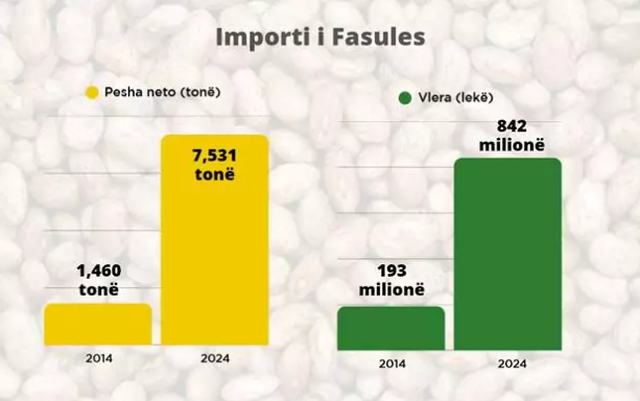
90% of the beans sold on the Albanian market come from Egypt. Last year, 6,788 tons of beans produced in the northeastern tip of the African continent entered Albania.
“We are increasing consumption, but not production. We are importing more and more — from Africa to the Balkans,” says Ilir Pilku, an expert on agricultural policies.
Lack of policies and workforce
Missing agricultural policies are the main cause of this situation, - emphasizes Professor Pilku, - while adding to this the lack of labor force.
"Beans require many more manual labor days than any other crop. Policies to motivate the workforce are lacking"
Due to climate change, farmers in the southeast have also suffered damage to other crops such as potatoes and onions.
"If every year I water five times, this year I watered ten times just for the potatoes. Even irrigation has a cost," says Altini.
The regions most affected by drought and high temperatures are the South and Southeast, as well as the coastal and lowland areas, which are particularly sensitive to the Mediterranean climate and the effects of global warming.
“Albania faces extreme weather events almost every year that sometimes destroy an entire year of work,” says Esmeralda Ballesha, an expert on agriculture and rural development. “Often they are heavy rainfall, floods or hail.”
"In the last 10 years, 10,000 ha of wheat, 15,000 ha of fodder crops, 1,000 ha of fruit trees and over 1,500 ha of vineyards have been damaged," adds Ndoc Fasllia, a professor at the Agricultural University.
Rito Hamataj, a retired agronomist from the village of Kafaraj in Fier, is the most recent example of the consequences of hail.
“It damaged 400 nectarine roots. Last year I got 200 quintals. This year — zero. I've never seen a storm like this,” he sighs.
While farmers count losses, the Ministry of Agriculture has no concrete figure for damages.
Is there any plan?
According to the response to Faktoje, the Ministry of Agriculture and Rural Development says it has carried out some assessments on climate impacts, but mainly through foreign projects. It admits that it does not have an annual assessment of damages, but “is planning measures such as new techniques, resistant cultivars and protection against hail and floods.”
"The time has come to properly assess the climate change process because the number of entities going bankrupt may increase," says Agim Rrapaj from the Albanian Agribusiness Council.
"If we continue to work without vision, Albania will continue the paradox of where and why it is the most agricultural country in the region, remaining the largest net importer of food," warns expert Esmeralda Ballesha.
Besides the climate, Albania has an even more dangerous factor: political decision-making. Mass emigration, minimal subsidies, the suspension of IPARD funds, and a ministry that calculates by eye, not by numbers, are some of the blows being dealt to agriculture.
This sector is the least funded by the state budget. According to INSTAT, agricultural production shrank by 2.7% year-on-year.
“Agriculture is like a house without a roof,” says Altin Ibrahimi. “The climate burns the roof off, politics kicks the door down.”
If the climate is burning the land, policies are throwing ashes on top. In a country where agriculture is identity, the lack of protection for farmers is a silent form of abandonment. Beans are just the beginning. The question that remains is: Will we protect this “roofless house”, or will we continue to import everything… except responsibility?/Faktoje.al
Latest news




Harxhi confirms: Berisha's visit to the US will be before the May 11 elections
2025-04-04 22:10:03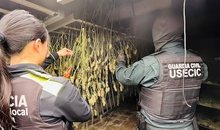
Marijuana plantation in Spain, four Albanians are arrested
2025-04-04 22:04:33
Kaja Kallas visits Albania for the first time as Head of EU Diplomacy
2025-04-04 21:54:25
Gjiknuri reveals disagreement with Rama over the lists: For me it is unnatural
2025-04-04 21:50:50
The scene repeats itself! Jozi scolds, seriously insults me Gesti
2025-04-04 21:31:38
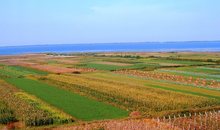
The climate is 'burning' agriculture
2025-04-04 21:15:17
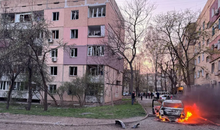
Russia attacks Zelensky's hometown with missiles, 14 dead, including 6 children
2025-04-04 20:44:05


Berisha: Every Albanian will receive 200 euros per month
2025-04-04 19:50:49




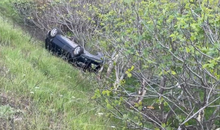
Accident on the Milot-Rrëshen axis, two injured
2025-04-04 18:15:15
Republika Srpska: We want a military alliance with Serbia and Hungary
2025-04-04 18:05:09



DP complains again about Basha to the CEC: Use our pages on social networks
2025-04-04 17:27:50


A police officer dies in Pristina, investigations begin
2025-04-04 16:46:32
NATO chief dodges questions on US tariffs
2025-04-04 16:33:15

Safe on the list as Berisha's loyalist? Korreshi: I used to be his opponent
2025-04-04 16:10:34
Sexual harassment of minors on the rise
2025-04-04 15:57:32
White House fires National Security Agency chief
2025-04-04 15:45:21
Protests in Serbia/ Students set off on bicycles towards Strasbourg
2025-04-04 15:33:36
The Criminal Court upholds the "prison arrest" measure for Bujar Shega
2025-04-04 15:24:26
Fire in Astir, police intervene, flames burst into the transformer cabin
2025-04-04 15:16:12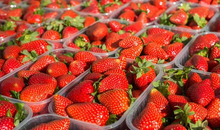



Part of a criminal group, 33-year-old arrested in Fushë Krujë
2025-04-04 14:12:48




DP requests CEC: Ban Basha from using our logo and symbols
2025-04-04 13:21:05
Berisha: Pensioners liked the DP program and the compassion package
2025-04-04 13:09:04

Massive brawl breaks out after car crash, 4 arrested and one wanted in Durrës
2025-04-04 12:51:39
Ndriçim Xhepa recounts his mother's betrayal: She wanted to make another film
2025-04-04 12:41:24
Alizoti met with the residents of Përrenjas
2025-04-04 12:33:49

Shovel promises! The history of "fraud" during the campaign
2025-04-04 12:14:30
Tributes to Margarita Xhepa, Tinka Kurti: I am in great pain
2025-04-04 12:06:23
15-year-old from Vlora hacks state institutions
2025-04-04 12:00:40
Traveling to Strasbourg, Berisha requests permission not to appear at SPAK
2025-04-04 11:46:31


Murder of Martin Cani/ The Supreme Court rejects Mario Perlleshaj's appeal
2025-04-04 11:17:58
Berisha: Lubi Balluku spends 10 thousand euros a month just to wash the car
2025-04-04 11:07:50
Are we eating "them" that the EU doesn't eat?
2025-04-04 10:53:47

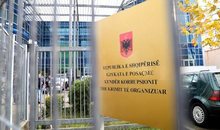
The hearing for the "Partizani" file is postponed
2025-04-04 10:18:38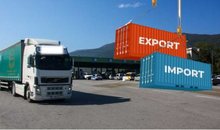
Trump's tariffs could cost Albanian exporters at least 7 million euros per year
2025-04-04 10:14:46


"Katundar, I'll kill him with my nails"/ Who betrayed Erion Veliaj?
2025-04-04 09:39:09
11 reasons why on May 11th, young people will punish Edi Rama with their votes!
2025-04-04 09:28:44
Albanian immigrants abandon dinghies; 23 thousand pounds travel to Britain
2025-04-04 09:14:06

Morning habits that improve thyroid health
2025-04-04 09:01:26

Former RENEA officer, Altin Morina, arrested
2025-04-04 08:32:32

Foreign exchange/ How much foreign currencies are bought and sold today
2025-04-04 08:09:35
Accident at the Gjadri intersection, two vehicles collide with each other
2025-04-04 08:00:15
Weather forecast for today
2025-04-04 07:46:27
HOROSCOPE/ Here's what the stars have predicted for each sign
2025-04-04 07:28:56
Morning Post/ In 2 lines: What mattered yesterday in Albania
2025-04-04 07:00:42
Theft of SPAK files, Lubonja: Attack by state officials shows degradation
2025-04-03 22:57:57
Berisha reveals the day when Chris LaCivita will come to Albania
2025-04-03 22:43:43


Berisha accuses Agron Shehaj: He stole the databases of DP members
2025-04-03 21:57:07

IT expert: SPAK prosecutors' emails were not hacked, information was obtained
2025-04-03 21:45:48


Këlliçi: PS, a criminal organization! Half of the cabinet are thieves
2025-04-03 21:03:01

Germany and Austria: We will sanction Dodik and his two associates
2025-04-03 20:42:41



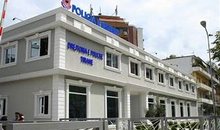
Oltion Buzi surrenders to Tirana police
2025-04-03 19:40:10
The first vote in favor of the DP comes from Edi Rama
2025-04-03 19:26:18
Student in Italy dies after eating a sandwich and developing an allergy
2025-04-03 19:21:03
